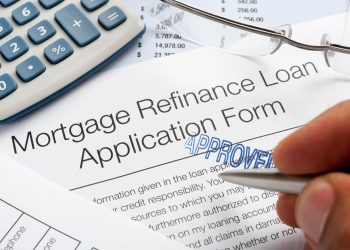 By Claudia Buck
By Claudia Buck
RISMEDIA, January 6, 2009-(MCT)-When it comes to New Year’s resolutions, Kathy Johnson of Sacramento, Calif., has two simple money-savers in mind: “to get out of debt and pay off all my credit cards.”
Johnson, a single mother, said her debts have accelerated due to health issues, unexpected veterinary bills and mounting interest charges.
Many are facing similar situations this year, especially given the painful enormity of 2008’s job and investment losses.
For advice on how Johnson and others can get a fresh start, we spoke with a financial adviser, a credit card expert and a CPA.
Here are their New Year’s tips for 2009:
1. Gather the paper. January is the perfect post-holiday time to collect your wits and your paperwork. Gather up all your financial documents–bills, credit card statements, insurance records–and create a filing system by category.
“Keeping financial and family records in an organized manner can save you time, money and trouble in the event of an emergency,” said David Colgren, spokesman for the California Society of CPAs. He recommends storing crucial documents-such as birth certificates, property deeds, insurance policies, wills and power of attorney authorizations-in a safe, fireproof location, such as a safe deposit box. Keep copies in clearly marked files at home. And be sure your spouse, a close friend or family member and executor (if you have a will or trust) know where those documents are located.
Also, CPA Perry Ghilarducci, owner and president of Avaunt Ltd. in Sacramento, recommends that if you’ve changed your marital status, bought or sold property, or want to change beneficiaries on life insurance and retirement accounts, take time now to review those documents, particularly your will and estate plan.
2. ‘Power’ down on payments. To get a lid on debts, write down all your income and every expense, including credit card payments, dentist bills, car loans, cable TV, even the daily coffee-and-muffin habit.
Hal Young, a financial adviser with Brecek and Young Advisors Inc. in Folsom, Calif., says the key is to eliminate enough monthly expenses to come up with a so-called “power payment.” Whether it’s $20 a week or $300 a month, it becomes an addition to your regular minimum payment on at least one outstanding debt.
He recommends making a chart, similar to the system in “Debt-Free on Any Income,” by co-authors Lyle and Tracy Shamo. List every creditor by interest rate, monthly payment and number of remaining payments.
“The bill with the highest interest rate or the smallest balance is probably the best one to attack,” says Young. It’s far easier to whittle down a $3,000 credit card payment than a $30,000 home-equity loan.
Try to avoid using credit cards entirely or switch your highest-interest cards to those with lower rates.
3. Talk to creditors. Perhaps the simplest step to lowering your debts is to pick up the phone. Call the company’s customer service line and request a lowered interest rate or help in modifying your repayment terms.
If the first person you speak with can’t help lower your rate or make adjustments to your account, ask to speak with a supervisor, says Bill Hardekopf, CEO of Lowcards.com, a Birmingham, Ala.-based website that provides credit card ratings.
“Persistence may be necessary to find the person who can help you,” said Hardekopf. “Explain that you are in debt, the steps you are taking to repay it and what you can pay today. Document all conversations, including whom you spoke with, the date, time and results.”
4. Make history. That is, a credit history. “Each spouse should have one credit card solely in his or her own name to be sure each individual establishes a separate credit history,” said Colgren in an e-mail. Without any repayment history in your own name, “it will be difficult to get a credit card, mortgage or loan.”
Also, request a free annual copy of your credit report to prevent incorrect information from damaging your credit score. Free credit reports are available at www.annualcreditreport.com or from each of the three credit reporting agencies: Equifax, Experian or TransUnion. (Note: Unlike a free credit report, there’s a fee if you want a copy of your credit score, the numerical rating that affects your borrowing costs for a car, home or other loan.)
5. Ask for help. This may not be the time to try to go it alone. Consider meeting with a qualified financial planner, CPA or tax adviser, even though there’s a fee involved.
If that’s not feasible, take advantage of free or low-cost credit counseling available through nonprofit groups, which offer help with credit card, mortgage and other debt issues.
Above all, this year, stay realistic. “Realize that paying off debt won’t be easy, but it is one of the best commitments you can make to yourself and your family,” Hardekopf said. And because getting into debt happened over time, “It will probably take you longer to get out,” he said. “Do not get discouraged, no matter how much you can pay off or how long it takes.”
Claudia Buck is the assistant business editor of The Sacramento Bee. Personal Finance Notebook answers questions about money matters, tapping a roster of experts for advice on navigating the often-confusing world of personal finance. Submit questions to cbuck@sacbee.com or P.O. Box 15779 Sacramento, CA 95852.
© 2009, The Sacramento Bee (Sacramento, Calif.).
Distributed by McClatchy-Tribune Information Services.










